The most powerful people in Canadian business and science
Filtering out our 2014 Power List to rank the top 13 from the world of business and science
Share
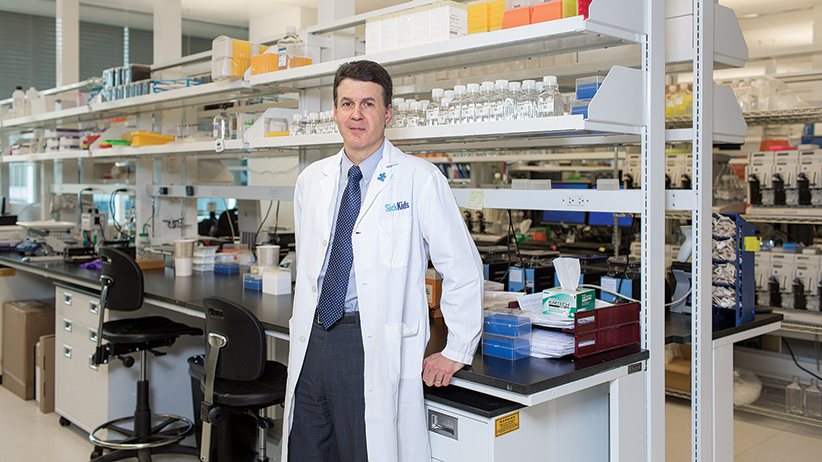
The 50 names on our 2014 Power List were released last week—naming the most powerful people in Canada. It’s a diverse list we put together with complete subjectivity, and finding commonalities among the group of 50 can make it hard to debate the list. So to help that debate along, we’ve cut the list along three lines. Here, we filter out and rank the 13 names from the worlds of business and science. Do you agree with our list? Is there someone who deserves an honourary mention? We invite you to write in our comments, tweet at us, or join us on Facebook to offer your own powerful case for a different list.
There’s no algorithm at work here. Are you annoyed by our choices? Angered by our omissions? We invite you to write in our comments, tweet at us, or join us on Facebook to offer your own powerful case for a different list.
This symbol indicates our weighting of the individual’s institutional standing. No surprise that the newly named head of Canada’s biggest bank ranks the maximum five. On the other hand, while we detect serious power in the creative clout of a certain movie director, he doesn’t head a studio or produce his own films, so we award him only a single blue pillar icon.
This tells you how much timing mattered in our choice of a given individual, based on the way things look to us in late 2014. Power expresses itself, after all, through the tasks of the moment. You won’t have to read very far into our list to see that we recognize the pressing priority of the Ebola challenge: Five clocks to a doctor near the centre of the crisis. The same principle works in reverse: Names from sports that made our 2013 list because we were looking ahead to the 2014 Winter Olympics in Russia have fallen off entirely.
The power that flows from great ideas is perhaps the most appealing kind. So we enjoy awarding multiple light bulbs to, as you’ll see, a university resident with new notions about linking academia to the community, or a young doc with new ways of thinking about the health of old folks.
Maclean’s 2014 Power List: The most powerful in business and science
- 13. Samir Sinha
- 12. Peter Singer
- 11. Elyse Allan
- 10. John Ruffolo
- 9. Arvind Gupta
- 8. Ann Cavoukian
- 7. Stephen Scherer
- 6. Heather Reisman
- 5. Stephen Poloz
- 4. Galen G. Weston
- 3. Bharat Masrani
- 2. Mark Wiseman
- 1. Joanne Liu
#13. Samir Sinha (#47 on our Power List)
Elder doctor
![]()
![]()
![]()
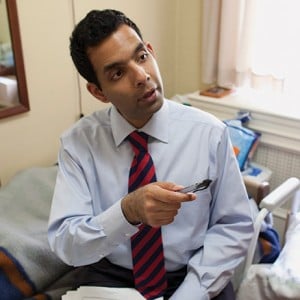 |
At the ripe age of 37, Dr. Samir Sinha is emerging as Canada’s most compelling voice for the elderly. In 2012, as the lead author of Ontario’s seniors strategy report, Sinha called for improving health care for older Canadians—and keeping them as physically active as possible—at a time when our ballooning aging population makes this a critical social issue. In 25 years, one-quarter of Canadians will be older than 65. And older adults currently account for 60 per cent of hospital bed days, while making up only 15 per cent of the population. “We have a health care system that was designed to meet the needs of younger Canadians, and now it needs to rapidly adapt to meeting the population it’s serving most,” Sinha says.
As director of geriatrics at Toronto’s Mount Sinai Hospital since 2010—upon his return from Oxford University where, as a Rhodes Scholar, he completed his master’s in medical history and a Ph.D. in sociology—Sinha has proven his approach works. His patients spend far less time in hospital than the provincial average and are more likely to live longer, independently at home. This includes Mr. W, now 104, who came under Sinha’s care in 2010 when he was admitted for pneumonia. Sinha ensured Mr. W stayed active and did physiotherapy. He returned home, where he’s been ever since. Many more Canadians may soon benefit from his approach: Sinha is working with the Canadian Medical Association on a national seniors strategy. — Rachel Browne
#12. Peter Singer (#44 on our Power List)
Global health innovator
![]()
![]()
![]()
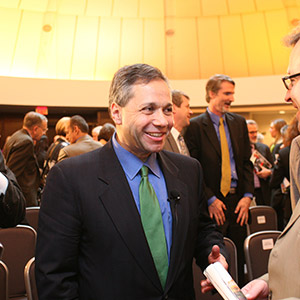 |
For the last 25 years, Peter Singer has dedicated his life to the impossible: solving the world’s health and social problems. His 56-page resumé proves this. He’s a medical doctor and professor, and holds numerous titles—from director of the Sandra Rotman Centre to foreign secretary to the Canadian Academy of Health Sciences—and even more accolades, including the Order of Canada and an appointment with the Royal Society of Canada. But it’s Singer’s role as CEO of Grand Challenges Canada where he’s had the most impact and turned Canada into a leader in development and global health.
Launched just over four years ago with funding from the federal government, Grand Challenges Canada finds and funds bold new ideas from innovators around the world to solve health problems in poor countries, from anemia to contaminated water. Under Singer, it has provided $158 million (and an additional $224 million leveraged from outside investors) to develop nearly 700 innovations in more than 80 low- to middle-income countries. But Singer is quick to deflect attention away from himself. “There’s a lot of credit to go around to everyone who makes all of this possible,” he says. “We have a fantastic team and it’s the innovators who are making the difference in peoples’ lives.”
At the Prime Minister’s global summit on maternal, newborn and child health last spring in Toronto, several innovations were debuted, including a project out of the University of British Columbia: a mobile phone app that measures blood oxygen levels to see if a pregnant woman is at risk for pre-eclampsia, one of the deadliest pregnancy complications in developing countries.
“We need innovations like these, because without them, we’ll just be stuck in the present, and that’s just unacceptable,” says Singer. Another Grand Challenges innovation in the works this year is a rapid diagnostic test for Ebola, being developed by an innovator from Uganda.
“It has been an incredible honour to do this on behalf of Canada,” Singer says. “It’s an initiative of which we can all be proud.” — Rachel Browne
#11. Elyse Allan (#43 on our Power List)
Energy emissary
![]()
![]()
![]()
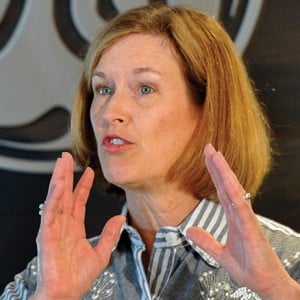 |
Alberta’s oil sands are both an economic boon and public relations disaster for Canada—a key resource that unfortunately also leaves a relatively large carbon footprint. But rather than engage in endless debates about the merits of squeezing gooey bitumen from the ground, General Electric and GE Canada CEO Elyse Allan are doing what they can to square the circle. Earlier this year, GE launched a program to fund research aimed at reducing emissions of oil sands companies and improving their energy efficiency, with Allan saying that “collaboration is key to solving big challenges.” When she’s not trying to solve one of the country’s thorniest economic problems, all while running the Canadian arm of one of the world’s biggest companies, Allan devotes hours to sitting on government advisory boards, as well as those of the C.D. Howe Institute, Conference Board of Canada and Royal Ontario Museum. — Chris Sorensen
#10. John Ruffolo (#42 on our Power List)
Always up for a venture
![]()
![]()
![]()
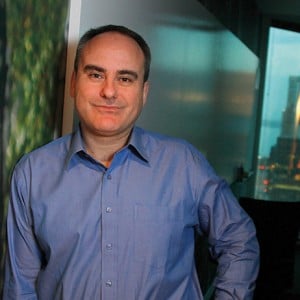 |
If oil prices keep falling, Canada will quickly realize the danger of relying on resources for growth. It’s a good thing, then, we have John Ruffolo, head of OMERS Ventures, the $200-million venture capital arm of the Ontario municipal workers’ pension fund, planting the seeds for Canada’s next generation of tech giants. Ruffolo, 48, was no stranger to the start-up sector when he took on the venture fund in 2011. At the consulting firm Deloitte in Toronto he worked closely with early-stage investors to connect them with tech entrepreneurs. His talents and influence are needed more than ever. Tech firms account for just three per cent of the market capitalization of the Toronto Stock Exchange (compared to 25 per cent for energy and mining). So far Ruffolo has nurtured a crop of start-ups, including Hootsuite, Shopify and Vision Critical, that are on track to go public, bringing much needed diversity to Canada’s capital market and helping to revive the country’s entrepreneurial spirit. — Jason Kirby
#9. Arvind Gupta (#39 on our Power List)
Thin on experience, rich in conviction
![]()
![]()
![]()
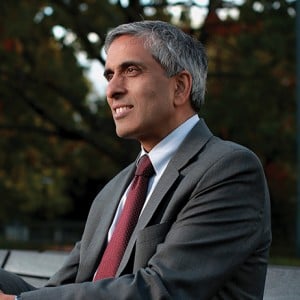 |
It’s not the fact that Arvind Gupta is a computer scientist that makes him such an unusual choice to oversee the University of British Columbia and its $1.4-billion budget. It is that UBC’s new hire has zero administrative experience in academia, a far cry from the usual path from professor to dean to vice-president to president.
What Gupta does have is a belief that exceptional research of all kinds has a place at UBC. This is blasphemy for those who believe university is a place to learn for learning’s sake, and that research should be “pure” and divorced from commercial interests. Gupta isn’t afraid of stirring the pot. He argues that collaborating with industry is UBC’s way forward—and makes his case for partnerships with the private sector rather bluntly, at least by the polite standards of power struggles in academia. Gupta is also an innovation expert who, as CEO of Mitacs, overhauled the non-profit research-funding organization to make it a place where Canada’s top graduate students are paired with industry to solve real business problems. He’s already announced he will add $100 million to UBC’s $565-million research budget. Now it’s up to Gupta to prove his hypothesis that this multi-million-dollar investment will distinguish UBC graduates and make their diplomas worth more than others. “What we’re doing now,” he says, “is not good enough.” — Nancy Macdonald
#8. Ann Cavoukian (#36 on our Power List)
Privacy in 37 languages
![]()
![]()
![]()
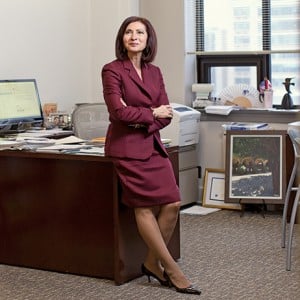 |
Long before her high-profile 15-year tenure as Ontario’s information and privacy commissioner came to an end earlier this year, Ann Cavoukian had solidified her reputation as an international expert on Internet-era intrusions into our private lives. Her Privacy By Design framework, with its seven foundational principles, such as embedding privacy into the design of IT systems, was recognized in 2010 as the global privacy standard. It has since been translated into 37 languages.
A workaholic by nature, Cavoukian opted not to take a break after her three terms as Ontario privacy commissioner, but instead took on a new role at Ryerson University as executive director of the Institute for Privacy and Big Data. With the public’s ongoing concerns about online security and identity theft, Cavoukian’s next chapter will be to demonstrate that acquisition and analysis of mass data sets can coexist with personal privacy. After all, she’s already created the framework. — Aaron Hutchins
#7. Stephen Scherer (#35 on our Power List)
Science as hockey
![]()
![]()
![]()
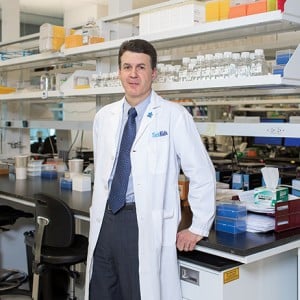 |
For many, science is seen as a kind of higher, sacred sanctum of knowledge, far away from the profane world of power and politics. And yet, for Stephen Scherer—who co-founded and leads Canada’s first genome lab in Toronto’s Hospital for Sick Children and whose paradigm-shifting research has him touted as an inevitable Nobel prize laureate—the lab isn’t too different from the hockey rink.
“I have a son who’s quite into hockey, so I hang around with the hockey dads, and no one’s in science. And some of them are very successful people,” said Scherer, 50. “But whenever I talk to them I say, ‘There’s nothing as competitive as science.’ ”
Scherer was a talented hockey player in his day, playing forward for championship squads in high school, but Canada is better for his career shift. He was part of the research team that, in 2004, discovered copy-number variation in DNA, detonating the long-held belief that very little of our genetic makeup could differ. That game-changer has since helped Scherer find copy-number variations that could cause genetic diseases; just this year, he unlocked a potential “autism formula” that will help spur more reliable identification from an earlier age, when intervention is most effective. In September, he earned a spot among only four Canadians on this year’s Thomson Reuters citation laureates list, which has correctly predicted 35 Nobel winners in the last 12 years. “If I accomplish nothing else in my life, being on that list is unbelievable,” he says.
Of course, Scherer’s drive precludes that possibility, fuelled by a field where academic peers double as competitors for research-grant dollars. Despite the honours and his prolific output—he’s published more than 400 papers and been cited in more than 30,000—he still puts in 100-hour weeks, reminding himself of the value of his work every time he walks through the doors at the hospital. “You really can’t rest on your laurels. In a way, I kind of like that,” he says. “It’s sort of a sick thing to say, but it never ends in your life.”
And while turning 50 would consign most athletes to retirement, it’s clear Scherer isn’t ready for the emeritus status that comes with science’s highest honour. “Nobel prize-winners will all tell you that once you win, your life changes: you become a public figure, you give talks. So ideally for me, I’d actually win it 10 years out, because of my age.”
To get there? Well, it’s just like in hockey, he says with a laugh: “The key thing is to stay healthy.” — Adrian Lee
#6: Heather Reisman (#33 on our Power List)
The best seller of bestsellers
![]()
![]()
![]()
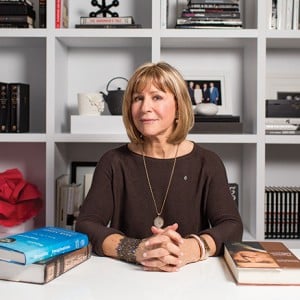 |
The chief executive officer and owner of a chain that moves almost half the books sold in Canada will always have literary opinions of significance to the entire book trade. But Heather Reisman, 66, is no aloof, profit-focused CEO. Indigo’s self-described “chief book lover” is the very face of her company and a voracious, wide-ranging reader: “Novels, poetry, biography, business stories, all kinds of books,” she says. Her intense personal interest means Reisman’s take matters like no one else’s, right down to individual titles. More than anyone else in the country, Reisman can make a bestseller, says one publishing industry observer, “as she did with Lawrence Hill’s Book of Negroes through her enthusiastic early adoption in her Heather’s Picks and in-store interviews.” Meaning, of course, that her silence can also be deadly.
For everyone in the book trade who snarks over the increasing space in Indigo stores devoted to candles, yoga mats and dinnerware, there is an admirer to praise Reisman’s business acumen—and what that’s meant to books in Canada. “If bookshops are still alive here—hers particularly, but also others that have learned from her,” says the publishing executive, “it’s because she was one of the first anywhere to bring in other items to support the core business. Now she’s an international trendsetter in that area.”
The effort to keep her chain flourishing isn’t just a labour of love, says Reisman, who with husband Gerry Schwartz, 72, the billionaire owner of Onex Corp., forms one of Canada’s more formidable power couples. “I totally think the book business has a future. Physical books will be with us for a long time to come—there’s something about their physicality—and Canadians’ commitment to reading will only grow. That’s just who we are.” — Brian Bethune
#5. Stephen Poloz (#29 on our Power List)
Until things look up
![]()
![]()
![]()
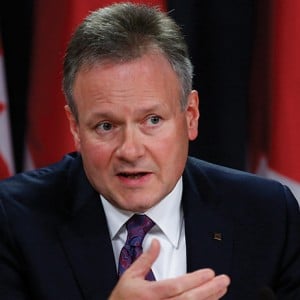 |
The Bank of Canada governor is not on this list because he’s a reliable source of good cheer. Stephen Poloz recently gave a speech, for instance, in which he noted that some 200,000 young Canadians are unemployed, underemployed, or have gone back to school to try to somehow boost their job chances of finding a job. He didn’t make news with that speech. But he did the day after by telling a parliamentary committee that young Canadians should consider taking unpaid work until things look up. The remark wasn’t well received. But all might be forgiven if Poloz, an expert on exports, helps orchestrate a sustained recovery in Canadian sales to our biggest market. “The good news for Canada is that the U.S. economy is gaining traction, particularly in sectors that are beneficial to Canada’s exports,” Poloz said early this month. Past experience suggests Bank of Canada governors get credit when that sort of prediction pans out. — John Geddes
#4. Galen G. Weston (#23 on our Power List)
More than that guy on TV
![]()
![]()
![]()
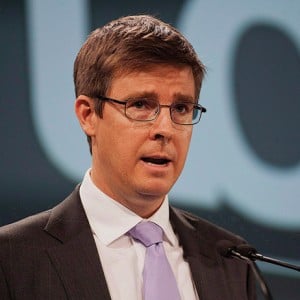 |
More than a pitchman for President’s Choice, Galen G. Weston cemented his reputation as a visionary corporate deal-maker after closing Loblaw’s $12.4-billion acquisition of Shoppers Drug Mart earlier this year. Now the Weston family scion is stepping further into the weeds of the business as president of the merged company, in addition to being its executive chairman. He will not only oversee the grocery giant’s overall strategy as it does battle with U.S. interlopers Wal-Mart and Target, but its daily operations, too.
With the expanded role comes increased expectations, but Weston has so far proven adept at navigating a challenging, consumer-focused industry that plays an almost daily role in many Canadians’ lives. The recent relaunch of Loblaw’s popular PC line, with a focus on removing artificial colours and flavours from everything from ice cream to spaghetti sauce, suggests a company in tune with changing tastes. A more telling moment, however, was Weston’s heartfelt response to last year’s collapse of a Bangladesh factory that churned out Joe Fresh clothing. Instead of pointing the finger at suppliers or pulling production from the country altogether, Weston took immediate responsibility and promised to be a force for good. So far that includes a pledge to compensate families of the 1,129 victims—regardless of whether they produced clothing for Loblaw or a competitor—donating to local charities and becoming one of the few big North American retailers to push for improved building and fire standards in the South Asian country. — Chris Sorensen
#3. Bharat Masrani (#7 on our Power List)
Steady as he goes
![]()
![]()
![]()
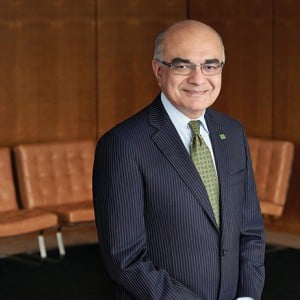 |
Measured by total assets, Toronto-Dominion Bank is now the country’s largest bank (having overtaken Royal Bank of Canada this year) and is well on its way to becoming Canada’s first trillion-dollar financial institution. That alone gives Bharat Masrani, TD’s new CEO, immense influence over the economy. Born in Uganda to Indian parents, raised and trained in the U.K., and boasting deep experience in the U.S. and Canada, Masrani’s resumé befits the modern and complex world of banking. He’s indicated he will be outspoken on economic and policy issues, just as his mentor and predecessor Ed Clark often weighed in on the housing market and indebted households. As with any new bank CEO—this year alone four of the Big Five got new chiefs—it will take time for Masrani to define his tenure, but he’s hinted at the direction he’ll take: steady as it goes internal growth rather than big-ticket acquisitions. Whatever brings in the billions. — Jason Kirby
#2. Mark Wiseman (#3 on our Power List)
Your money, his genius
![]()
![]()
![]()
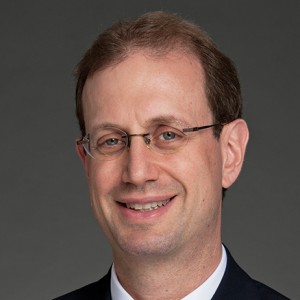 |
As the president and CEO of the Canada Pension Plan Investment Board, Mark Wiseman has more direct responsibility than anybody over the retirement incomes of millions of Canadians. At the time of the board’s most recent quarterly report, he was overseeing CPP assets worth a cool $234.4 billion. One indicator of how shrewdly he invests that national nest egg is the lack of debate surrounding the CPP’s soundness—even when just about every other aspect of the way Canadians save for retirement is up for argument. And Wiseman isn’t just some cautious money manager on a massive scale. Among his recent buys: a 39 per cent stake in a Brussels-based parking-lot company operating in 350 cities. His aim is a “globally diversified, resilient portfolio.” How’s he doing so far? Well, for the 2013-14 financial year, the CPP board posted a 16.5 per cent annual return. How’d your RSP do last year? That’s why Wiseman is so powerful. — John Geddes
#1. Joanne Liu (#2 on our Power List)
Speaking unspeakable truths
![]()
![]()
![]()
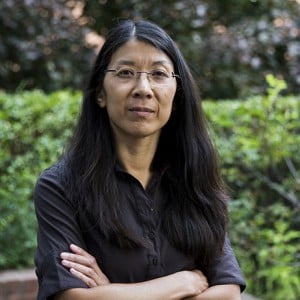 |
There’s much to be said for plain language, and at the worst of times it becomes essential—something Joanne Liu grasped last fall as the death toll in West Africa began to soar. “Today, Ebola is winning,” declared the international president of Doctors Without Borders (Médecins Sans Frontières) at a high-level UN meeting on Sept. 25. “Our 150-bed facility in Monrovia [Liberia] opens for just 30 minutes each morning. Only a few people are admitted—to fill beds made empty by those who died overnight. The sick continue to be turned away, only to return home and spread the virus among loved ones and neighbours.”
It was a searing portrait of an epidemiological disaster, issued by a physician with scant time for diplomatic niceties. The 49-year-old pediatric emergency physician from Quebec City took the helm at MSF six months before the Ebola outbreak in West Africa. As her teams fanned out last summer across the afflicted areas, she realized that her idealistic non-profit organization was the only bulwark against a deadly and fast-moving pathogen. The affected countries—Guinea, Liberia, Sierra Leone—lacked the money or health care infrastructure to mount an adequate response. Western governments let the crisis slide, apparently on the belief the outbreak would peter out.
Throughout the disaster, Liu has proven a passionate yet decisive leader. By early fall, MSF had deployed nearly 250 international staff to affected communities, hiring and training 2,800 local people in the unwieldy methods of treating Ebola. Meanwhile, Liu put the screws to inert foreign governments—fearlessly giving voice to unspeakable truths. “I’ve never had to build a crematorium in the middle of my mission and burn 100 bodies in the same day,” she told Maclean’s in October. “All my teams are telling us it is hell on Earth right now.”
At times, it seemed as though her frustration was getting the best of her, as in early October, when the international media shifted its lens from Africa to Dallas and the first Ebola case to arrive in North America. “We must stop focusing on hypothetical cases in Canada and the U.S.,” Liu told her hometown newspaper, Le Soleil. “Our means are light years away from those in Liberia. The patient has been quarantined and there will be a hundred caregivers around him. The chain of transmission will stop with that person.” It came off as callous: The infected man, Thomas Duncan, ultimately died. But it was hard to argue with Liu’s logic. Why should one case in Texas supersede the catastrophe in West Africa, where 5,000 had died and thousands of new cases were appearing each week?
Liu comes by her toughness honestly. As one of few Asians in Quebec’s capital in the 1970s (her family owned a Chinese restaurant), Liu withstood racist taunting in her early school years but persevered to become one of the brightest lights at McGill University’s medical school. She took her first overseas aid trip at 18, got her specialty in pediatric emergency care at New York University and joined MSF in 1996. Today, she ranks alongside fellow Canadian Margaret Chan, head of the World Health Organization, as one of most influential voices in international aid. And those sluggish governments are finally listening. As of this writing, they had kicked in nearly $400 million to battle Ebola, money Liu said must be “translated into immediate action.” — Charlie Gillis